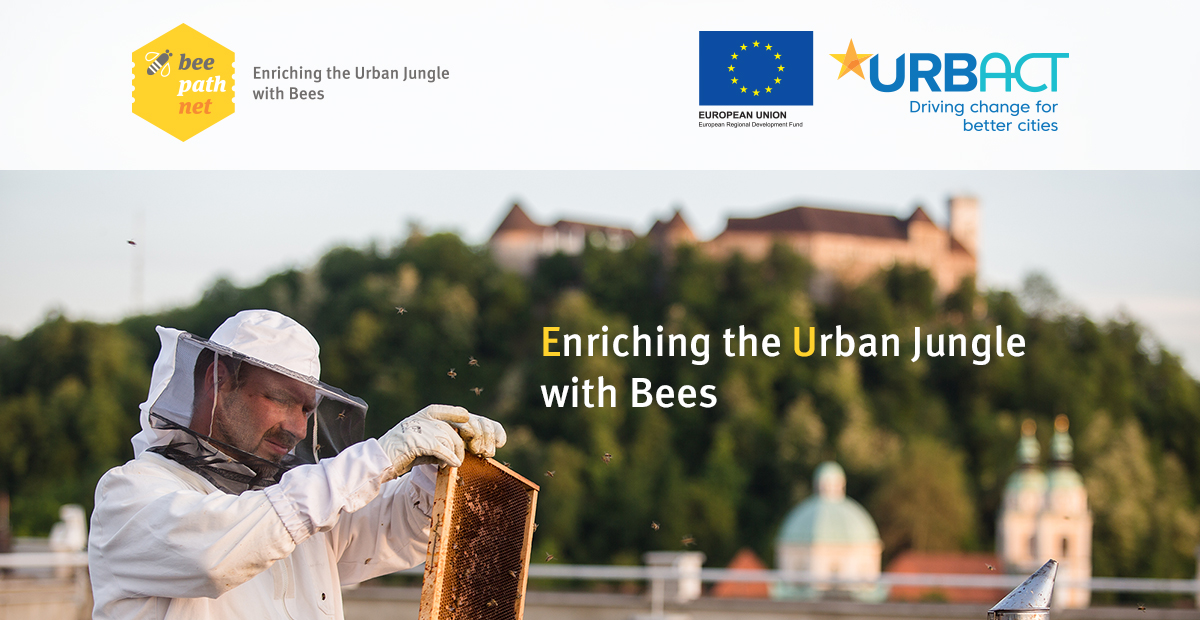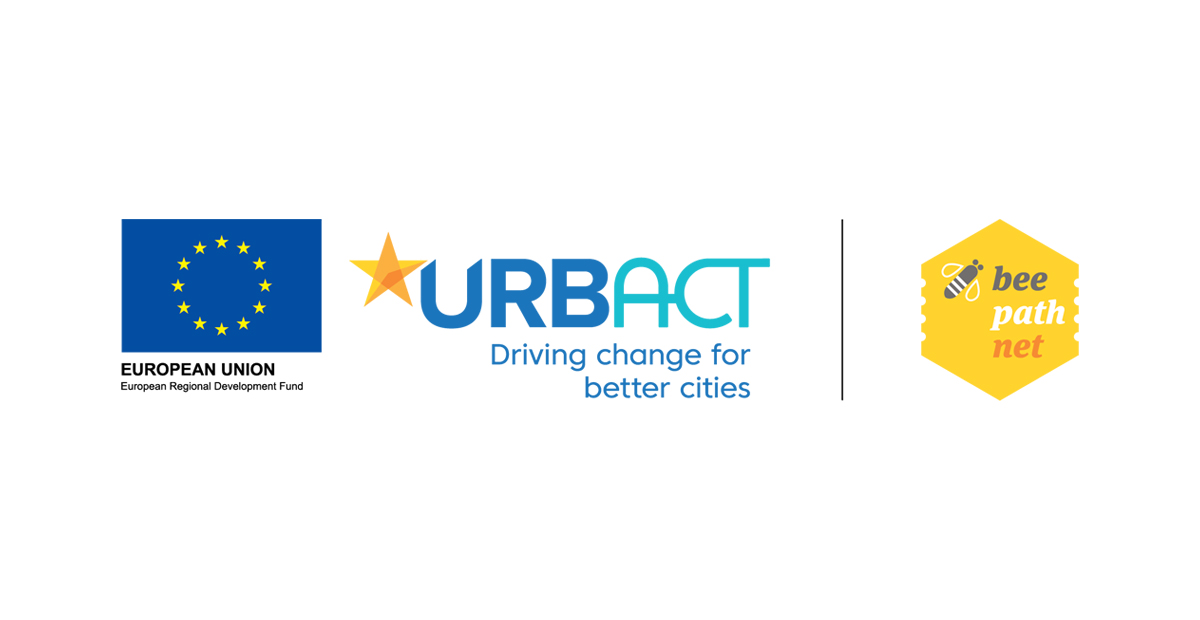BeePathNet key objectives
The purpose of the BeePathNet project is upgrading and transferring the good practice concept, solutions and results of the BEE PATH from Ljubljana to other EU cities. It will deal with challenges of the urban environment, biodiversity and food sustainability in connection with urban beekeeping with the aid of integrated and participative approaches and implementation of key interest groups to influence relevant policies as well as the development and implementation of effective solutions.
In the 1st phase of the project which ran from 4.4.2018 till 4.10.2018 we implemented the partnership, prepared a transferability study of the City of Ljubljana’s good practice to partner cities and concluded a 4-day transnational meeting.
On the 4th of December 2018 Ljubljana and the five partner cities entered the second phase of the project where the first 18 months will be intended for education and knowledge transfer. All project activities will mostly focus on the empowerment of local group managers and members from the five transfer cities, to gain the competence and knowledge needed for further development and upgrading of the urban holistic approach to beekeeping in their cities. We will also organise a series of thematic meetings, mainly during the last six months as well as several promotional activities on a national and international level, to spread the movement to other EU cities.
The BeePathNet network includes 6 EU cities – – Ljubljana, Slovenia, as the leading partner; Amarante, Portugal; Bydgoszcz, Poljand; Cesena, Italy; Hegyvídek – XII district of Budapest, Hungary and Nea Propontida, Greece.
Key project activities
All project activities will mostly focus on the empowerment of local group managers and members from the five transfer cities, to gain the competence and knowledge needed for further development and upgrading of the urban holistic approach to beekeeping in their cities. We will also organise a series of thematic meetings and several promotional activities on a national and international level, to spread the movement to other cities.
The key project activities are:
- Operationalisation of working groups and development of action plans on urban beekeeping in each partner city
- Ljubljana BEE PATH good practice study tour with training for Transfer city ULG members
- Transfer-city Case-study and topic devoted partnership meetings on the maintenance of biodiversity in urban areas, BeePathNet educational packages, awareness raising, development of “bee paths”, and development of new bee products
- Development of a set of thematic guidebooks, newsletters and project booklet in order to transfer knowledge to stakeholders within the partnership and beyond
- Distribution and promotion of project outputs, partners good practice, and achievements, etc, through various media
- Organisation of the celebration of World Bee Day (20th May) in all six partner cities in 2020, under the BeePathNet umbrella, as well as several other national events
- BeePathNet final conference.
BeePathNet network partners
The BeePathNet network connects 6 EU Cities – Ljubljana, Slovenia, as the lead partner, Amarante, Portugal, Bydgoszcz, Poland, Cesena, Italia, Hegyvídek - XII. district of Budapest, Hungary and Nea Propontida, Greece.
Such a partnership composition allows the BeePathNet project to cover the majority of climate conditions for beekeeping in the EU (Atlantic, Continental, Mediterranean, Alpine), as well as to take into account cultural and social differences between the cities. Additionally, partners were selected, based on their specific knowledge and good practices, which will be their contribution to the transfer process.
From the City of Ljubljana Bee Path to the BeePathNet network
It all started in 2015, when the City of Ljubljana created the BEE PATH, which through two and a half years evolved to become a network of local stakeholders – providing a platform for discussion on challenges, searching for solutions, and development of new products on a voluntary basis, a touristic and educational path - presenting the importance of bees and urban beekeeping, an educational programme devoted to awareness-raising amongst target groups, as well as a “think-tank” and an incubator for development of new entrepreneurship ideas.
Although the Ljubljana success was awarded the title of URBACT Good Practice, it firmly believes that the BEE PATH is by no means a finished project, but rather a work in progress – growing and evolving on a daily basis. On top of that, it decided to take the opportunity to transfer the good practice to other EU cities through the BeePathNet Transfer Network Project and to learn from them as well.
Enriching the Urban jungle with bees starts in our network and aims to go beyond. Will you join us?



